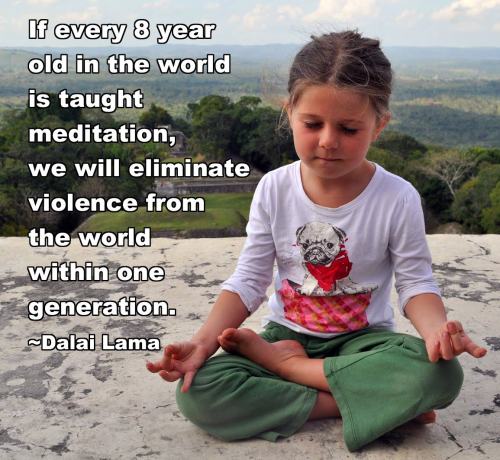
Growing Imagination
THE emergence of a new spiritual epoch in education may have dawned far back in the late 19th century driven by Theosophical principles.
New educational reforms encompassing spiritual development are evident in the formation of new schools today, many of which embody the eternal principles championed by H. P. Blavatsky in The Key to Theosophy.
“In many countries, educational reforms are taking place to consider the changing needs of 21st century learners,” writes Canadian theosophist Kathleen Hall in The Theosophical Roots of Spiritual Education, noting how:
“The old factory model of education that was mainly concerned with churning out obedient workers no longer suits the needs of today’s world.”
The principles defined by Madame Blavatsky in The Key to Theosophy, raised the educational bar, both then and now . “Children should above all be taught self-reliance,” she declared, “love for all men, altruism, mutual charity, and more than anything else, to think and reason for themselves.”
Adding: “We would reduce the purely mechanical work of the memory to an absolute minimum and devote the time to the development and training of the inner senses, faculties and latent capacities …

Meditation
“Deal with each child as a unit and educate it so as to produce the most harmonious and equal unfoldment of its powers, in order that its special aptitudes should find their full natural development; Aim at creating free men and women, free intellectually, free morally, unprejudiced in all respects, and above all things, unselfish.” (Theosophy and Education).
“The object of modern education is to pass examinations, a system [adapted] not to develop right emulation, but to generate and breed jealousy, envy, hatred almost, in young people for one another, and thus train them for a life of ferocious selfishness and struggle for honours and emoluments instead of kindly feeling.”
Going to School Less
Documentary filmmaker Michael Moore has taken a look at Finnish schools as part of his new movie “Where to Invade Next.” Here is a clip from his visit with teachers.
Teacher Tom
(The blogspot of Teacher Tom, preschool teacher, writer, speaker, artist in Seattle, Washington):
“Corporate-type ‘reformers’ have created schools with longer days, more homework, more paperwork, more high stakes standardized testing, and a federally mandated standardized curriculum, all of which has, according to the New York Times, resulted in lower math scores and exactly zero improvement in other areas. They are failing, they know they are failing, and instead of looking around and seeking to learn from those who are succeeding, they are doubling-down on their vision of public schools as test score coal mines.
“It’s quite clear that our political and business leaders have no interest in actual education. The evidence could not be more clear that these so-called ‘reformers’ are only about imposing their will upon our schools and banking money from the labor of our children. It doesn’t make sense any other way.”

“Seeds of Wisdom”
“The seeds of wisdom cannot sprout and grow in airless space. To live and reap experience, the mind needs breadth and depth and points to draw it towards the Diamond Soul.”
Do Schools Kill Creativity?
Sir Ken Robinson, TED Talks
The Plastic Power
of Mind
by H. P. Blavatsky
“The higher part of the mind is connected with the Spiritual soul or Buddhi, the lower with the animal soul, the Kama principle. There are persons who never think with the higher faculties of their mind at all; those who do so are the minority…and are…beyond the average human kind. These will think even upon ordinary matters on the higher plane.
“Certainly it [the habit of thinking on a higher plane] can be developed with great difficulty, a firm determination, and through much self-sacrifice. But it is comparatively easy for those who are born with the gift.”

Sow and Piglets
“Why is it that one person sees poetry in a cabbage or a pig with her little ones, while another perceives in the loftiest things only their lowest and most material aspect, will laugh at the ‘music of the spheres,’ and ridicule the most sublime conceptions and philosophies? The difference depends simply on the innate power of the mind to think on the higher or on the lower plane.
“The person who is endowed with this faculty of thinking about even the most trifling things from the higher plane of thought has, by virtue of that gift which he possesses, a plastic power of formation, in his very imagination. Whatever such a person may think about, his thought will be so far more intense than the thought of an ordinary person, that by this very intensity it obtains the power of creation.”
– Studies in Occultism, from the article Dialogues Between The Two Editors by H. P. Blavatsky

Giant Cabbage






Wonderful thoughts!
LikeLike
Thanks for your comment. You are doing a much needed work today, more like yours is needed.
All best.
LikeLiked by 1 person
As a retired philosophy professor, I couldn’t agree more with this post. Wonderful!!!! However, rather than academia, it seems that technology has taken over the education field.
LikeLike
Thanks for your comment! Yes, no doubt. Agreed. Have lived through our kids and grandkids being in the NYC Public Schools bureaucratic nightmare!
LikeLike
Got it Odin thanks
Sent from my Sprint Samsung Galaxy S7 edge.
LikeLike
Hey Cecil, thanks for hooking up. Namaste!
LikeLike